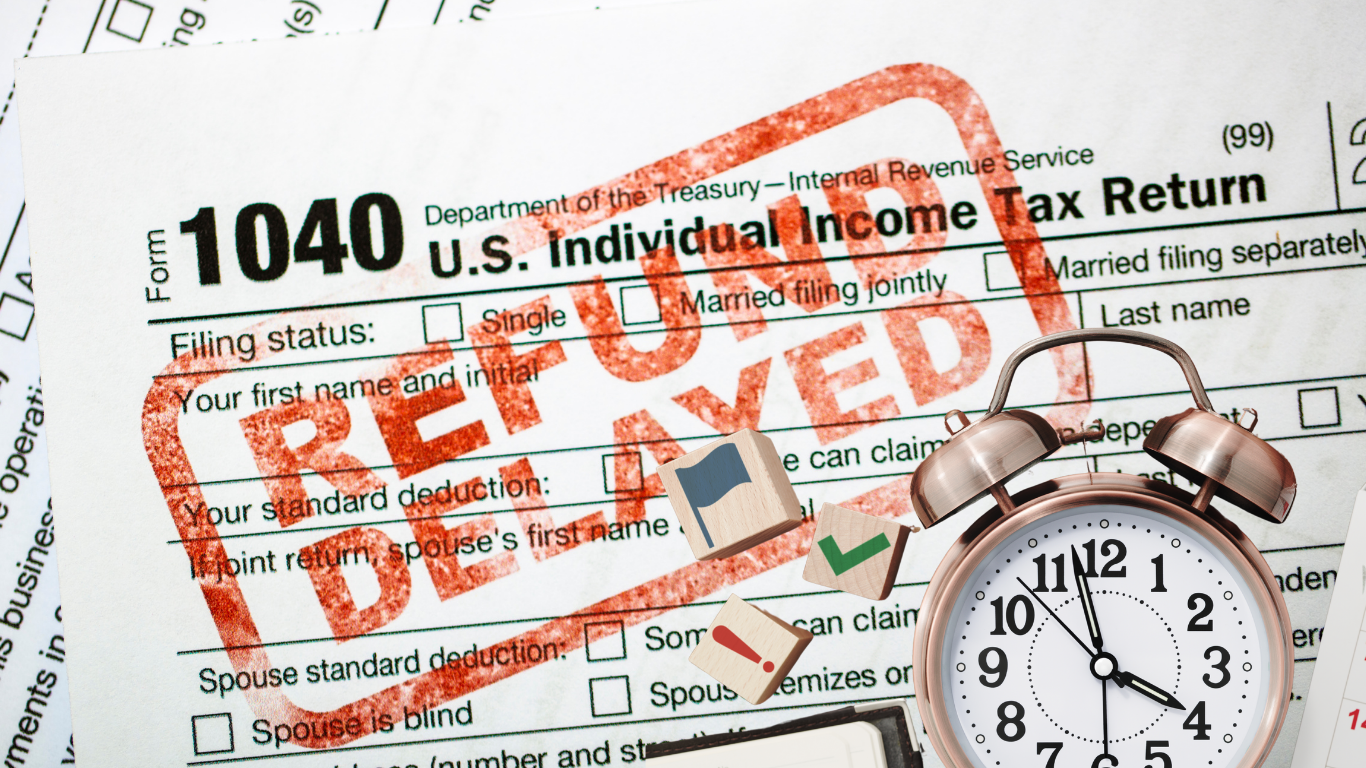
Why Is My IRS Refund Delayed: What’s the Hold-Up in 2025?
Are you still waiting for your tax refund? You’re not alone.
Every year, IRS refund delays impact millions of taxpayers. 2025 is no expectation.
In this article, we’ll break down the IRS refund delays in 2025, including the reasons for extended processing times, which returns are most affected, and what you can do if your refund is taking longer than initially expected.
Why Is My Tax Refund Delayed in 2025?
Here are the four top reasons why your IRS refund is delayed this year:
1. Tax Credits Are Causing Processing Delays
Refunds with Earned Income Tax Credit (EITC) or Child Tax Credit (CTC) require additional verification to prevent fraud.
Note: The IRS is required to hold these returns until mid-February each year, even if you filed early.
2. Paper Returns Require Manual Reviews
Did you mail in your return or make corrections after filing? This adds several weeks to the timeline because your return requires manual processing.
3. Missing or Incorrect Information
Errors such as typos or misspellings on your forms can trigger a hold and cause a delay in processing. Mistyped Social Security numbers, math mistakes, and incomplete banking details can cause delays.
4. IRS Staffing Issues and Shortages
In 2025, ongoing staffing reductions and restructuring have impacted the IRS. As the agency switches to new technological advancements, there is not enough manpower to handle high volumes as quickly as before.
Common Tax Credits That Delay Refunds
Tax credits are an essential part of lowering your annual tax bill. But these credits also require additional review processes:
- Earned Income Tax Credit (EITC)
- Child Tax Credit (CTC)
- American Opportunity Tax Credit (AOTC)
- Premium Tax Credit
If you claimed any of these, expect longer wait times due to additional fraud prevention verification.
How Do I Track My IRS Refund Status?
You can check your IRS refund status in several ways online:
- IRS “Where’s My Refund?” Tool: IRS.gov/refunds
- IRS2Go Mobile App: iOS and Android
- Direct Contact: 21 days since e-filing, or 6 weeks for a mailed return
What Can I Do If My Refund Is Delayed?
If your refund is taking longer than expected, here’s what you can do:
- Double-check your tax return for typos, errors, or missing information.
- Use online IRS tools to monitor your refund progress.
- Don’t file duplicate returns, as this could cause even more delays.
- Consult a tax pro if your situation is flagged for review or is complex.
Still no luck? Tax Attorneys of America can help review your IRS filing and ensure your documents are error-free, compliant, and processed by the IRS.
What Should I Expect Moving Forward?
Here’s a general 2025 IRS refund timeline based on your filing method:
|
Filing Method |
Estimated Refund Time |
|
E-file with direct deposit |
7–21 days |
|
Paper return |
4–8 weeks |
|
Return with credits |
2–5 additional weeks |
Final Thoughts: IRS Refund Delays Are Part of the Process
High volumes, staffing changes, and enhanced fraud checks have impacted IRS refunds in 2025. These delays are very common if you are claiming tax credits.
However, if you file correctly and know what to expect, you can stay informed and reduce your stress.
Need expert help? Tax Attorneys of America offers assistance for resolving IRS notices and navigating credit claims.


